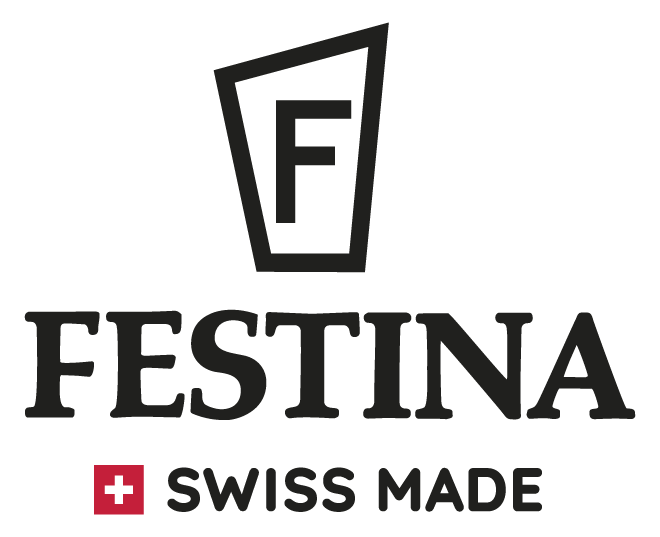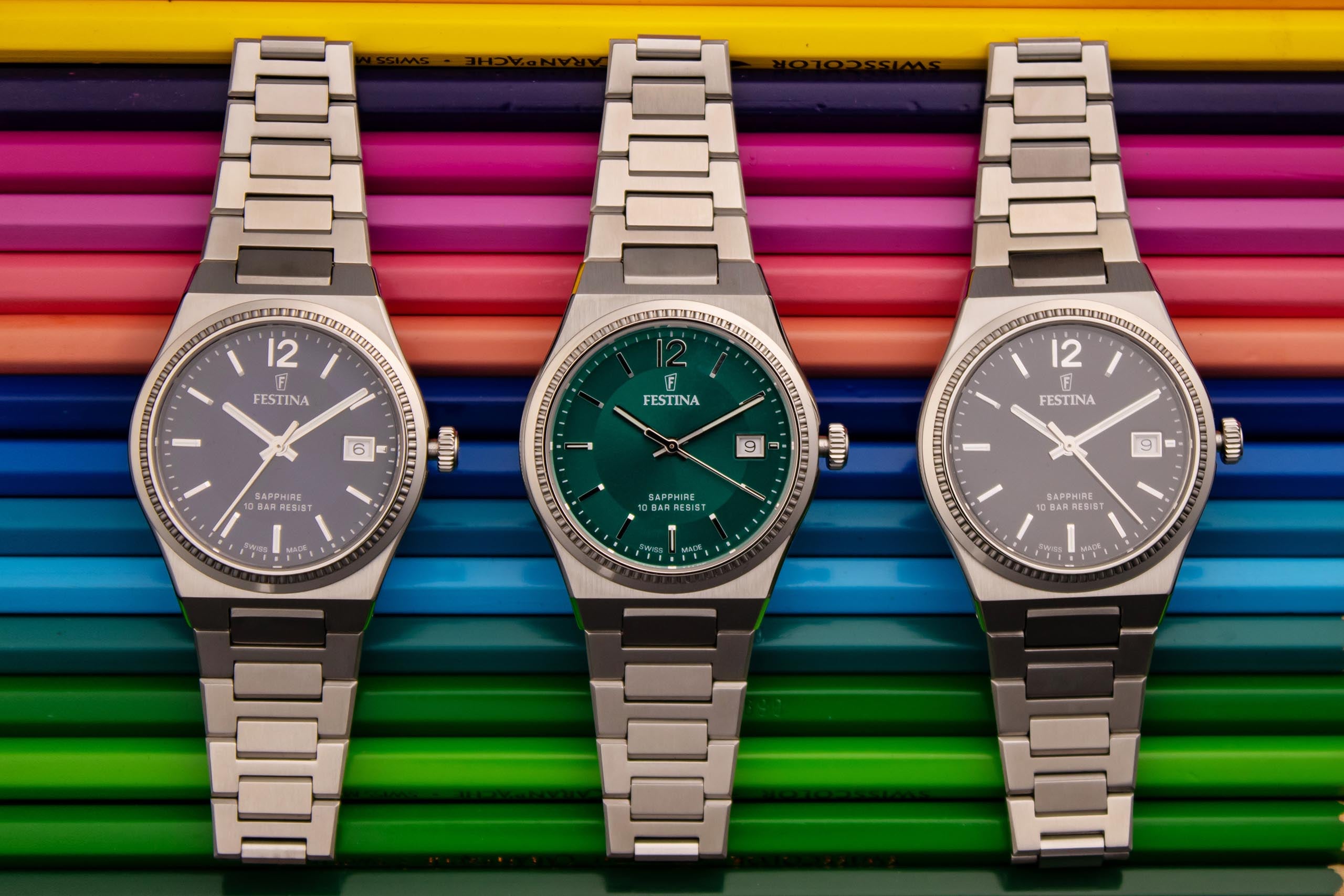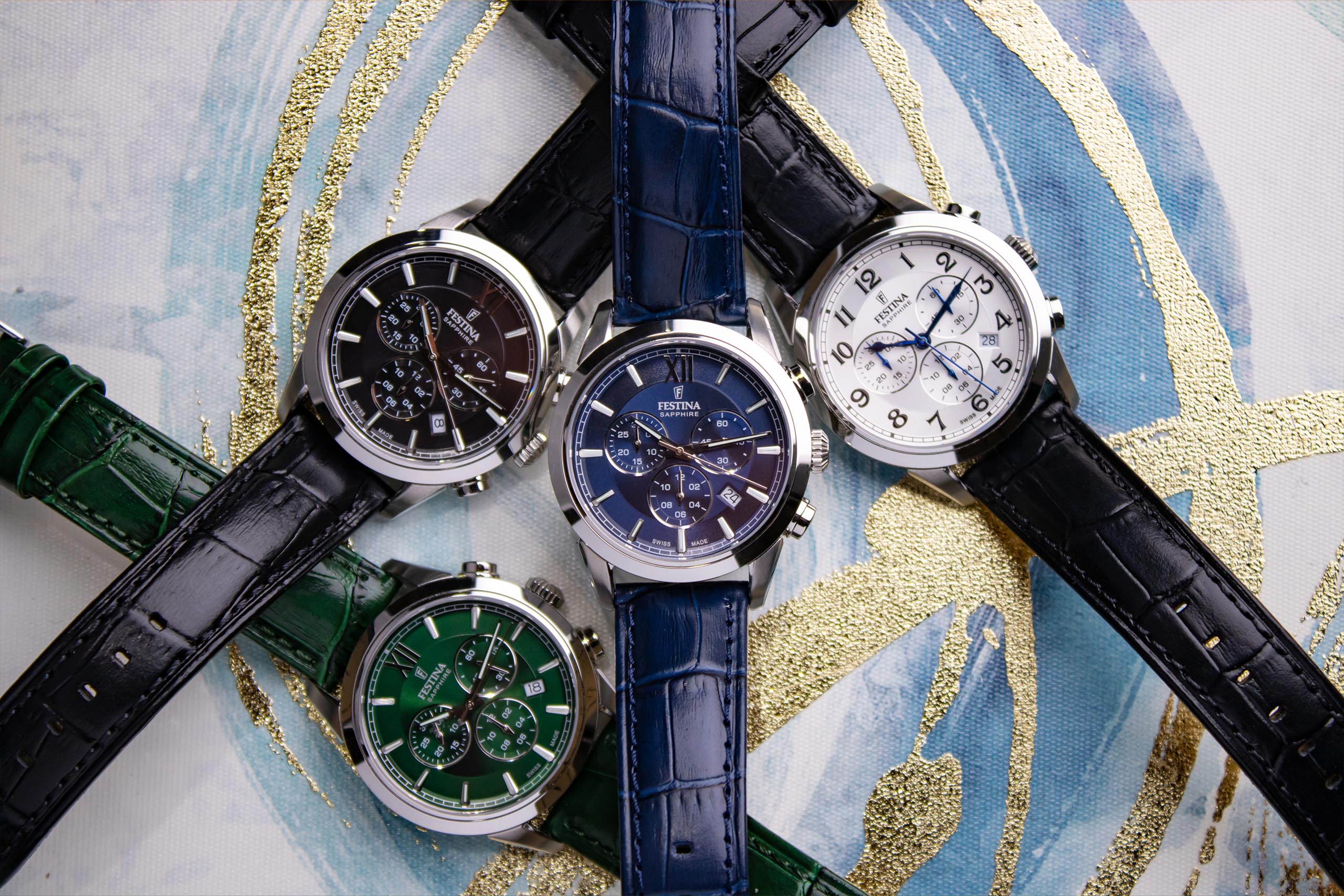The Timeless Journey of Festina
Early Foundations and Expansion Festina's story begins in 1902 in the heart of Swiss watchmaking, La Chaux-de-Fonds. Founded by the Stüdi brothers, the brand quickly established itself with a commitment to precision and craftsmanship. In 1935, a pivotal change occurred when businessman Willy Burkhard von Wilhelm acquired Festina, and the brand was relocated to Barcelona, Spain, with further support from Adolf Hoffmann during the tumultuous times of World War II.
Growth and New Horizons By 1975, the brand was under the ownership of Georges Uhlmann, who expanded Festina’s international presence. However, it was in the 1980s that Festina saw a significant transformation under the leadership of Miguel Rodríguez, a visionary businessman from Cádiz. Rodríguez, who initially ventured into the watch industry by selling Swiss watches in Spain, acquired Festina in 1984.
A New Era of Innovation and Sports Alignment Rodríguez’s leadership marked a new era for Festina. His aggressive marketing strategies propelled Festina into the limelight of the sports watch segment. In 1984, the launch of the "Chrono Bike" collection, specifically designed for cyclists, set a new standard for style and performance. The brand further solidified its connection with cycling by becoming the official sponsor of the Festina cycling team in 1990, and later, the official timekeeper of the Tour de France in 1998, followed by the Tour de Suisse and the Tour de Romandie in 2005.
Integration of Soprod Movements A notable enhancement to Festina’s offerings is the integration of Soprod movements, specifically the PO24 and PO92 calibers. Soprod, a Swiss movement manufacturer acquired by the Festina Group, contributes precision and reliability with these advanced mechanical movements. The PO24 is known for its robustness and accuracy, while the PO92 offers enhanced functionality, ensuring that Festina watches continue to embody exceptional Swiss craftsmanship and performance.
Modern Era and Continued Excellence Today, Festina stands as a benchmark in the watchmaking industry. Its headquarters in Barcelona oversees a global operation with production facilities in Switzerland and Spain, and a presence in over 90 countries across five continents. Festina's commitment to quality and innovation is evident in its wide range of timepieces, from sporty chronographs to elegant designs, all crafted with precision and style.
The brand’s latest offerings include advanced Mecaquartz movements and models crafted from premium materials like titanium and stainless steel. Notable designs such as the Chrono Bike Special models and the Tour de France Alarm Chronograph showcase Festina’s dedication to performance and reliability.
Legacy and Future Festina’s legacy as a pioneering sports watch brand is firmly established, with its timepieces being a popular choice among sports and fashion enthusiasts alike. The brand’s ambassador lineup includes actor Gerard Butler and cyclist Richard Virenque, underscoring its blend of style and athleticism.
As Festina continues to innovate and expand, it remains a symbol of Swiss quality and precision, bridging tradition with modernity and offering exceptional timepieces for every occasion. The incorporation of Soprod movements, particularly the PO24 and PO92, further enhances its reputation for excellence in watchmaking.
Key Milestones and Important Aspects of Festina:
- 1902: Founding: Festina was established by the Stüdi brothers in La Chaux-de-Fonds, Switzerland, marking the beginning of its legacy in watchmaking.
- 1935: Acquisition and Relocation: The founding family sold Festina to businessman Willy Burkhard von Wilhelm. The brand was relocated to Barcelona, Spain, during World War II with the help of Adolf Hoffmann.
- 1975: New Ownership: Georges Uhlmann acquired Festina, leading to expanded international presence and growth.
- 1984: Miguel Rodríguez Acquisition and Strategic Shift: Miguel Rodríguez, a businessman from Cádiz, acquired Festina. Under his leadership, the brand launched the "Chrono Bike" collection, specifically designed for cyclists.
- 1990: Cycling Team Sponsorship: Festina became the official sponsor of the Festina cycling team, strengthening its association with cycling and sports.
- 1998: Tour de France Timekeeping: Festina became the official timekeeper of the Tour de France, enhancing its reputation in the sports watch segment.
- 2005: Expansion of Timekeeping Roles: Festina extended its timekeeping role to include the Tour de Suisse and the Tour de Romandie.



